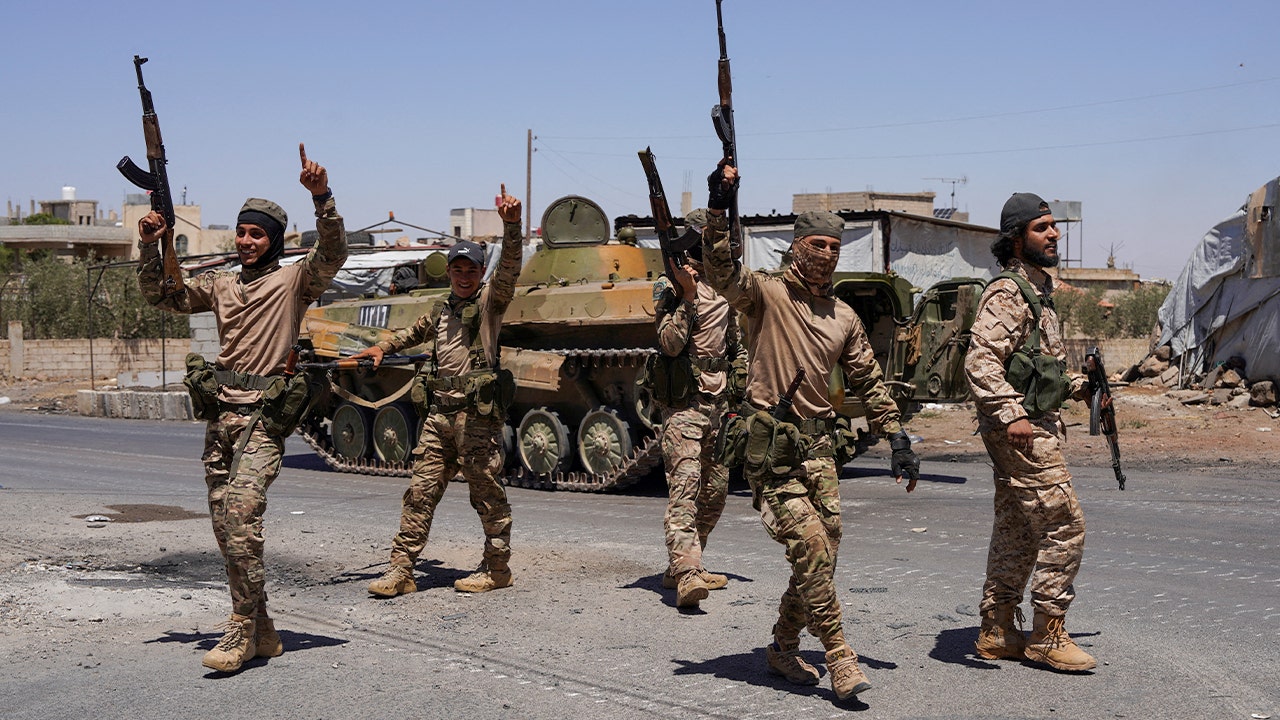If you don’t already loathe the communist regime in China, you’ll surely come to loathe it—and thirst for justice for every innocent it has wronged in every cruel way known to man—after reading Those Who Should Be Seized Should Be Seized. And if by some misbegotten chance you don’t despise the ruling tyrants in Beijing even after you’ve read the book, let it be said that you don’t have a heart, a conscience, a soul.
The book in question, by John Beck, takes its title from words uttered by Xi Jinping, China’s president, in a speech given at the Second Xinjiang Work Forum in May 2014. “Those who should be seized should be seized.” The steely Xi went on to say, also, that “those who should be sentenced should be sentenced.” He was calling for a crackdown on the non-Han Chinese people in Xinjiang. “Heart disease requires heart medicine,” said Xi. “For Xinjiang, this ‘heart medicine’ is a correct view of the motherland and nation, Chinese culture, the core value system of socialism and the core values of socialism.” (Xi managed, here, to be both turgid and menacing. The Chinese communists commit atrocities not just on human beings, but also on human language.)
Xinjiang is China’s name for its northwestern province, the country’s largest. This vast space, correctly seen as land usurped by China, constitutes as much as a sixth of China’s territory. (Subtract Xinjiang, and Tibet and Inner Mongolia, and you have a China that looks so much less daunting on a map.) The region was once called East Turkestan, and its autochthonous Muslim Turkic people—the Uyghurs—yearn to rid their land of Chinese rule. Their struggle for self-determination is peaceful—apart from stray incidents of violence directed at ever-increasing numbers of Han Chinese settlers, to which the Chinese security forces have always responded with punitive brutality. This hasn’t stopped Beijing from regarding as a potential Islamist terrorist any Uyghur who calls for self-determination.
Beck’s book reveals that Xinjiang’s is a sad and impotent struggle. Up to a million Uyghurs have spent time—often many years—in “re-education centers,” which blatantly mendacious Chinese propaganda describes as places for vocational training and instruction in Chinese language and culture (where food and board, it’s always emphasized, are “free”). In truth, these are giant prisons, concentration camps equipped (as Beck tells us) with every modern form of surveillance and torture.
A prominent Uyghur leader, a gentle and bookish economics professor called Ilham Tohti, was sentenced to life imprisonment in September 2014. Though Beck does not mention him, Professor Tohti is known as the “Chinese Mandela.” His crime? To demand the Chinese regime follow the country’s own constitution and treat the Uyghurs as well as (or, better put, no worse than) it treats the ethnic Han. Tohti’s family no longer knows his precise physical whereabouts and cannot even be sure that he is alive. His daughter, who is—full disclosure—a friend of mine, lives in exile in the United States. She battles bravely to free her father.
Beck’s beautiful, heartrending book does not get into the detailed politics of the Uyghur struggle. Nor does it address the contested history of East Turkestan’s conquest by, and incorporation into, China. Instead, it bypasses the abstractions and ideology of the yearning for a return to East Turkestan, swapping the Big Picture for an intimate one. Beck allows us to see Xinjiang at its most human—and therefore harrowing—level, by focusing on the lives of four Muslim people in a land where the state regards Islam as a mortal enemy of communism. He gives us the stories of two Uyghurs and two ethnic Kazakhs, all of whom were born and raised in Xinjiang.
Kazakhstan, which became a sovereign country after the collapse of the Soviet Union in 1991, lies to Xinjiang’s west. Throughout history, Kazakhs have lived on either side of what is now an international border that sunders family members from each other, as is the case with Saira, the Kazakh woman with whom Beck begins his book. The other three subjects are Tursunay (a Uyghur nurse who marries a much older ethnic Kazakh man in hopes of being able to leave Xinjiang); Adiljan (a Uyghur Everyman who slips off to exile in Turkey to protect himself from potential arrest, leaving his wife and children behind in Xinjiang at the mercy of the Chinese state), and Serikzhan Bilash (a Xinjiang-born Kazakh human-rights activist who lives and works, when we first meet him, in Kazakhstan, but is able by the end to secure asylum in the United States). Through their stories, we learn of the daily torments that are the lot of China’s Muslim minorities, and of the efforts of the Chinese regime to strip a people of their culture, their history, their dignity, and, eventually, their humanity.
The strength of Beck’s book lies in its eye for distressing detail. He gives us four portraits of the most profound pain, and by the end of the book we come to identify so closely with each character that we wince in sympathy when they suffer, miss a heartbeat when they are in danger, and strain with rage when they have barbarities heaped upon them.
An example of the latter: One evening, Chinese security officers visit Saira’s home in rural Xinjiang. She is a successful businesswoman who has come under the scanner as a result of her frequent business trips abroad. They want to know who she has met on her travels; what the political views of her contacts were; whether they were Islamist, or subversive in some way. In Saira’s house they find shelves full of books, many of which stray beyond the rigid bounds of what is permitted in a repressive state where people’s minds are policed just as assiduously as their bodies. Beck writes of the officers (who had come equipped with sacks in which to gather evidence of wrongdoing): “They started collecting her books and putting them into the sacks. It took ten sacks altogether. Packed so full that it took two or three of the officers to lift each one.”
What follows will make you weep. They hauled the sacks, bursting with books, to a pit they’d dug outside Saira’s house. And there, after dousing them with gasoline, they set the sacks alight. “The books did not burn easily.” But burn they did, and with them went Saira’s inner life, her intellectual and cultural ballast. But worse—much worse—was to follow. She was taken to a re-education center where, for nearly a year, she was stripped of all dignity, tortured, fed scraps, scarcely permitted to wash, allowed to use a toilet for only three minutes each day, and beaten if it was deemed that she wasn’t learning her “lessons” well enough. This was a fate that also befell the Uyghur nurse Tursunay, who, in addition to every indignity suffered by Saira, was also raped by her guards.
Adiljan, the Uyghur man, did not get sent to a camp. He went, instead, to a place that was (in many ways) just as painful: exile without his family, knowing at every moment that his escape had put them in grave danger. In Turkey, he leads a drab, hollow existence—spied on by the Chinese, who use Uyghur exiles to keep tabs on their fellow-escapees—before emboldening himself enough to take part in public protests outside the Chinese consulate in Istanbul.
Beck tells Adiljan’s story—and the stories of Serikzhan, Saira, and Tursunay—with compassion and indignation. His narrative is exquisitely restrained. How easily it could have spilled over into frothing anger. But it never does. And it is his narrative restraint that allows his interlocutors to speak for themselves, to tell us—in their own stark words—of the calamities that befell them, of the calamities that have befallen East Turkestan, a land held hostage by an all-powerful regime that is vile and cruel, and so often demonic.
Those Who Should Be Seized Should Be Seized: China’s Relentless Persecution of Uyghurs and Other Ethnic Minorities
by John Beck
Melville House, 320 pp., $30.99
Tunku Varadarajan is a writer with the editorial page of the Wall Street Journal and a fellow at the American Enterprise Institute.
Read the full article here






